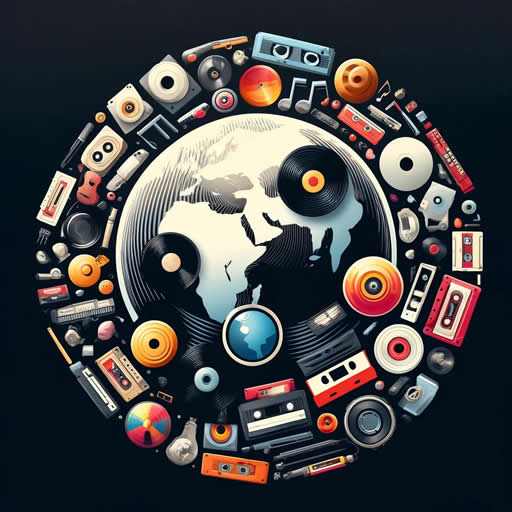The Oldest Song on Spotify: A Journey Back to the 14th Century BCE
When we think of music streaming platforms like Spotify, we typically imagine contemporary songs, the latest hits, or classic albums from the 20th century. However, hidden among the millions of tracks available is a piece of music that dates back an incredible 3,400 years—long before the invention of recording devices or modern musical notation. This ancient piece, titled “The Hymn of Ugarit,” holds the distinction of being the oldest song available on Spotify, with origins in the 14th century BCE.
The Discovery of “The Hymn of Ugarit”
In the early 1950s, archaeologists working in the ancient city of Ugarit, located in what is now modern-day Syria, made a groundbreaking discovery. While excavating the ruins, they uncovered a series of clay tablets inscribed with cuneiform script, an ancient system of writing used by various civilizations in the Near East. Among these tablets was one that stood out—it contained what is believed to be the earliest example of a musical composition in written form.
This ancient piece, known today as “The Hymn of Ugarit,” is thought to have been a religious hymn dedicated to Nikkal, the goddess of orchards and fertility. The hymn is written in the Hurrian language, which was spoken by the people of Ugarit at the time. The text of the hymn not only provides the lyrics but also contains specific instructions on how to play the music on a nine-stringed lyre, a popular instrument in the ancient world.
Transposing the Oldest Song into the Digital Age
Of course, 3,400 years ago, there were no recording devices to capture the sounds of the music played in ancient Ugarit. So, how exactly did this song make its way onto Spotify?
The key lies in the translation and interpretation of the ancient musical notations. While the exact rhythm and melodies used by the ancient musicians are impossible to know for certain, modern scholars have worked diligently to decipher the instructions provided on the tablet. In 2008, musician Al-Pha-X took on the ambitious task of transposing “The Hymn of Ugarit” into a form that could be understood and appreciated by modern listeners.
Using the cuneiform symbols and the known structure of ancient instruments, Al-Pha-X created a digital version of the hymn that preserves the mystical and haunting quality of the original composition. The result is a fascinating blend of ancient tradition and modern technology, allowing us to experience a piece of music that originated thousands of years ago.
The Legacy of “The Hymn of Ugarit”
The existence of “The Hymn of Ugarit” on Spotify offers a rare glimpse into the musical traditions of ancient civilizations. It serves as a reminder that music, in all its forms, has been an integral part of human culture for millennia. This song represents not just the skill of ancient musicians but also the importance of cultural preservation—how even fragile clay tablets, buried for thousands of years, can carry the legacy of a people long gone.
In the modern era, where music is streamed and shared instantly across the globe, the presence of this ancient hymn on platforms like Spotify connects us to a time when music was an essential part of religious and social life, but also something very different from the pop culture hits of today.
What Can We Learn from the World’s Oldest Song?
“The Hymn of Ugarit” provides us with a unique window into the past, offering valuable insights into the musical theory and cultural practices of the ancient Near East. While we may not be able to recreate the exact experience of listening to the hymn as it was performed 3,400 years ago, Al-Pha-X’s interpretation allows us to come closer than ever before to understanding the role music played in this ancient society.
Moreover, the very existence of this song on Spotify speaks to the power of technology in preserving and sharing historical artifacts in ways that were once unimaginable. Today, anyone with an internet connection can listen to a composition that predates recorded history, offering an unprecedented way to engage with the ancient world.
“The Hymn of Ugarit” stands as a testament to the timelessness of music. From its origins on a clay tablet in ancient Syria to its current life on Spotify, this song has endured through the ages. Thanks to the efforts of scholars and musicians like Al-Pha-X, modern listeners can now experience a piece of history that once seemed lost to time.
So, the next time you’re browsing through Spotify, take a moment to step back from the contemporary music scene and immerse yourself in the ancient world by listening to the oldest song available—a track that connects the distant past with the present in a truly unique way.
